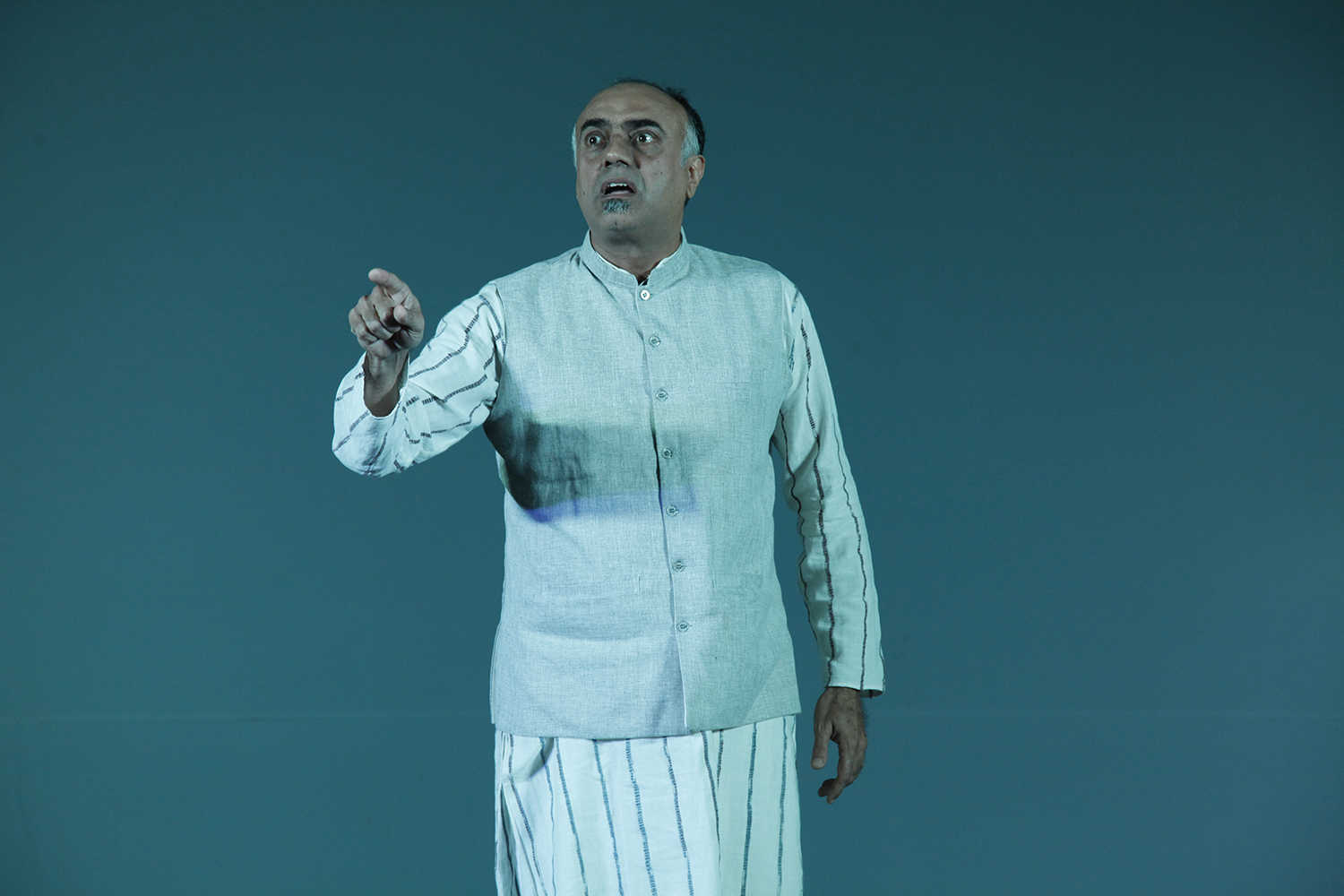The actor, a participant at the LIFFT India Awards and Filmotsav 2017, sat down for a quick chat about the changing world of cinema and theatre, and the flaws that still exist.
LIFFT India: We need to go into our literary roots. Because it is a treasure house, says Rajit Kapoor
Lonavala - 02 Sep 2017 20:23 IST
Updated : 21:57 IST


Shriram Iyengar
The first glimpse we catch of Rajit Kapoor at the LIFFT India Awards and Filmotsav is when he is in deep discussion with the light man to get the setting for his short play, No Body, right. The actor also did a book reading of 'Asa Ha Balgandharva', in Hindi, on day 2 of the festival being held in Lonavala, midway between Mumbai and Pune.
Running a fever and wrapped in a sweater hoodie, Kapoor, who was once known for his portrayal of the Bengali detective Byomkesh Bakshi, sat down for a few minutes to talk about the festival, and films. Excerpts from the conversation:
How has your experience been at LIFFT so far?
I was here last year as well [when the Lonavala International Film Festival of India was conducted]. Since [festival founder and director] Riju [Bajaj] is an old friend, any kind of support he needs, I am there. He is trying to do something unique, which is more than necessary.
The idea of bringing all these art forms under one umbrella is the USP of LIFFT. And you have been part of it by performing a short play, No Body, and a book reading of 'Asa Ha Balgandharva'. Talk us through these ideas.
Well, the book reading was actually Riju's idea. He pointed out to me that there is this Marathi novel, and a film that became very popular. He wanted literature, in so many ways, to be a part of it. He asked me to read a Hindi translation. I found the opening four pages itself engaging. The rest goes into the life and plays of Bal Gandharva. The first four pages really spoke of the fact that arts are also a form of fighting. Through the arts, through what they are saying, whether it is a play or anything else, you are not just reflecting on what is society, but you are in so many ways going against formulae, and against the norm. It will always be a struggle.
Indian cinema, and theatre, has grown up on a world of very indigenous stories like Byomkesh Bakshi, Feluda, or Ibn-e-Safi's mysteries. Yet, the recent arrival of blockbuster phenomena from international cinema has posed a challenge.
Yeah, which is why we need to go into our literary roots. Because it is a treasure house. Not just our roots in terms of history, but also in terms of contemporary writing. For example, yesterday the piece I did was a piece of contemporary writing based on our life today. Not just taking something that is there and putting it together.
Recent films have indeed turned inwards for stories, characters. As an actor, and a writer, where do you think the flaws still exist?
Well, the writing is getting there, I have to admit. It is definitely getting better. But even those independent filmmakers, and small-budget filmmakers, still face the problem of marketing. The making of a film might not be tough today, but the marketing and selling of the film has become more important. If you can't sell your film, you have had it. Therefore, people are looking to put selling points in their film. Therefore, you want the star. You need to have a USP. People will ask you, 'What is the USP of your film? Why should we come and watch it?' These questions never came up before.
Are you sure these problems were not present before? I remember when we spoke to Shyam Benegal, he mentioned about cinema being a commercial product, which will need to, eventually, be sold. You have worked with him. How is it different today?
No, at least the selling wasn't so difficult as far as I know. Now it is a race. People block the release date almost a year in advance. So that there is no other film in the same window. So that they get a clean sweep for the first four days. That has become the focus of the film.
There is the online platform, and film festivals, which offer these filmmakers and actors a chance in the market.
These allow people creative outlets. You have to admit that the internet has offered writers, filmmakers, and out-of-work actors a chance. That's a good thing. Initially of course, there will be good content coming. Gradually, it will become like our television, or social media. After a while, mediocrity will settle in.
You are going back to Mumbai today. What do you have planned?
Well, we complete 25 years of the theatre company I founded with a couple of my friends. So we have a number of events lined up for the next four months.
I am also part of Meghna Gulzar's Raazi [starring Alia Bhatt and Vicky Kaushal], which we are currently shooting. We are currently shooting in Patiala, and move to Chandigarh on the 6th, and then to Kashmir.
Related topics
LIFFT India


